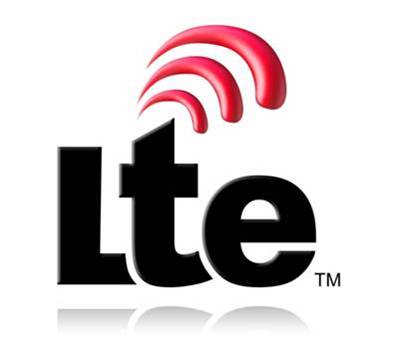
Blockbuster OnDemand to hit Motorola handsets
As Blockbuster gets slowly buried by rivals Netflix and Redbox, it has pulled out a number of noteworthy streaming partnerships: TiVo in March, Samsung in July, and according to the most recent reports, Motorola. But Blockbuster OnDemand is reportedly not coming to Motorola set-top boxes, just phones.
Kevin Lewis, Senior Vice President of Digital Entertainment for Blockbuster today said, "People are increasingly relying on their mobile phones to stay connected to the things they love the most -- including their favorite movies and TV shows. The integration of our Blockbuster OnDemand service into Motorola's mobile phones will provide access to thousands of movies from the moment someone initiates their service."

European Commission pumps €18 million into LTE research
Today, the European Commission announced it will invest a total of €18 million into researching the deployment of LTE and LTE Advanced.
The EC says it will begin laying down the details of its LTE projects next month, and intends to begin in January 2010. The projects are expected to cost more than €700 million by the time they're completed in 2012.

US broadband adoption plummets as national plan goes forward
Yesterday, Leichtman Research Group (LRG) released its quarterly study of the nation's cable and telephone providers and found that net broadband additions last quarter were the lowest they have been in eight years, dropping by almost 30% from last year.
"The second quarter has proven to be traditionally weak for broadband growth, but with the market becoming more mature, broadband adds further waned in 2Q 2009," said Leichtman Research Group's President and principal analyst Bruce Leichtman.

Microsoft sets out new model for its 'Oslo' modeling language
Since September of last year, Betanews could barely do a story about one or two specific, related Microsoft technologies, code named "Oslo" and "Dublin," without getting a call or comment from the department responsible for the other technology saying our perspective was all wrong. This despite, at one point, providing the transcript of most of a complete interview with the product manager responsible for Oslo, which includes Microsoft's very innovative M modeling language, and which will become a core component of Visual Studio 2010.
Yesterday morning, company engineer Douglas Purdy, a product unit manager on the Oslo project, acknowledged all the confusion that had been generated over associating the modeling language with Dublin, arguably a very different technology for Windows Server, giving it the ability to deploy cloud services. In a blog post, Purdy explained that the company now intends to treat these separate technologies as separate, and to stop extending the boundaries of Oslo into Ireland and Dublin into Norway.

PS3 Slim: A virtual repeat of the PSP Go?
At Sony's big press conference scheduled today in Germany for Gamescom, the long-rumored PS3 Slim, a much cheaper, much smaller PlayStation 3 with a 120 GB HDD and requisite Blu-ray player, was finally unveiled. However, it wasn't too much of a surprise for eager potential buyers, as several online retailers prematurely posted product pages for the device.
It is similar to the situation with the PSP Go! at E3 this year. Just days before the new, smaller PlayStation Portable was slated to make its big debut, Sony's own Qore magazine leaked a picture of it.
Sony Computer Entertainment's President and CEO Kaz Hirai called it the "Worst-kept secret of E3."

Exchange Server 2010 Release Candidate available today
Download Exchange Server 2010 x64 Release Candidate from Fileforum now.
This morning, a Microsoft spokesperson told Betanews that the company will be making available the first public release candidate for its Exchange Server 2010 e-mail server today. As of late Tuesday morning, the links still pointed to the last ES 2010 public beta.

Sky not falling after the latest Firefox 3.5.2 dust-up with .NET plug-in
Mozilla Firefox users awoke this morning to the news in their RSS feeds that the organization had dared to send push notes to its users urging them to upgrade to a Web browser version that was, as the report put it, ".NET incompatible." Hopefully, Firefox veterans knew what was really going on.
Users who upgrade their Firefox versions a few times per month anyway have seen this all before, and have long since discovered there's no need to panic: Microsoft's .NET Framework Assistant add-on has a habit of showing up in users' Firefox plug-ins list without them even asking for it. Its purpose is not to make Firefox compatible with .NET -- anyone who's installed Silverlight 3 in Firefox knows that. What it does is give .NET apps designed to be run through the browser a kind of hook to the .NET runtime -- a hook that Internet Explorer includes by design -- so that these apps can check their servers and update themselves.

Moonlight 2.0 beta tries to show off Silverlight 2.0 compatibility
Though it's been in private testing for some time, the Silverlight 2.0 work-alike system for Linux built by the open source Mono Project is now ready to present itself to the general public. This afternoon (after a few fits and starts), Moonlight 2.0 Beta 1 was released for general testing, with one of the runtime module's ambitious new features being the enablement of different media codecs, including Mono's own rendition of open-source Ogg Vorbis, Ogg Theora, and BBC Dirac.
Although multiple video codec support is slated for inclusion by Microsoft in Silverlight 3, Mono team lead developer Miguel de Icaza said today that he decided to implement the media pipeline feature from Silverlight 3 into the 2.0 specifically "to play back media files that use the open codecs or to plug your own media codecs." De Icaza only expressed his interest in tackling this bit of functionality just last March.

Former Secret Service informant named in 'largest credit card data breach ever'
Today, the US Department of Justice announced that a 28-year-old hacker and former Secret Service informant named Albert Gonzales is being indicted for the third and, by far, the largest crime of his short career: participation in the theft of more than 130 million credit and debit card mag-strip data dumps, in attacks between 2006 and 2008.
Gonzales was already in federal custody for several major data breaches. He faces trial in New York next month for the first, which involved hacking restaurant Dave and Busters' payment system. Then the second case will be heard in Boston in 2010 for Gonzales' involvement in the theft of data off of more than 40 million credit card mag-strips from OfficeMax, Barnes & Noble, BJ's Wholesale Club, and many more.

Dell denies Chinese smartphone makes its official debut
For some time now, Chinese engineers have been working on an offshoot of the Android smartphone OS that uses a proprietary front-end, with the intention of creating a network for functions and applications that will rival that of Apple's iPhone. It's being called the Open Mobile System (OMS), and the app platform is now being referred to as Ophone.
This morning overseas, China Mobile showed off its newly completed Mobile Market applications store, the country's first competitive online market for Ophone apps. Since there is no single Ophone unit for China, multiple manufacturers may be involved in producing the phones themselves; and as attendees of this morning's event learned to their surprise, Dell -- the company that has long been hesitant to enter this market -- was one of them.

HTC confirms 'Sense' Android UI upgrade for China
HTC's 'Sense' UI is a large part of what makes the HTC Hero such a desirable handset for Android fans. The interface, centered mostly around home screen widgets, was debuted earlier in the summer and was expected to arrive on other "non-Google" HTC Android handsets.
Since there are only three HTC Android handsets, and all of them are Google-branded in the US so far, this meant at the time that the UI was not coming to the States.

A browser war veteran turns wannabe
Marc Andreessen is a brilliant guy. His Mosaic browser, which eventually morphed into Netscape, introduced us all to the concept of surfing and ushered in the Internet as we know it. His new way of looking at online services -- which seems ho-hum today but was radically transformational 15 years ago -- freed us forever from the tyranny of arcane, unfortunately named services like Archie, Veronica, Jughead, and Gopher. In taking Netscape public, he set the stage for dot.com-era IPOs that created countless tech billionaires-as-rock-stars and defined an era when technology's potential was seemingly limitless. Let's call him brilliant and visionary, then.
However, even geniuses have their bad days...sometimes, they have many. Netscape was eventually wiped off the relevance map when Microsoft finally woke up to the Internet reality and paved over the landscape with Internet Explorer. The Internet bubble burst as the perverse logic that drove much of it -- eyeballs, "stickiness," and the ridiculous notion that bricks-and-mortar were headed for permanent and complete obsolescence -- was finally and thankfully replaced by the old rules of business that dictated you needed to generate revenue, and that revenue needed to exceed your costs.

Sony takes more control of Sony Ericsson, appoints Stringer to chair
It's difficult to say which company has suffered most from the bad global economic climate -- Nokia, Motorola, or Sony Ericsson -- but if you ask any of their executives candidly, they'll probably point to their own firms. Last quarter, Sony Ericsson reported shipping 43% fewer phones than in the same quarter of 2008; and in terms of income, the company is bleeding at the rate of a third of a billion euro per quarter.
At the time, company president Dick Komiyama promised he would continue focusing on a return to profitability. This morning, it was learned that Sony has told the division president he can start thinking about focusing someplace else -- preferably, retirement. Effective immediately, Ericsson Executive Vice President Bert Norberg will scoot Komiyama to just a part of the president's chair, until the last quarter of the year when Komiyama will be out altogether. Though Komiyama will officially be sharing the presidency with Norberg until then, no one's under any illusion that this sharing will be anything more than official.

Back up the Pirate Bay!
With the future of the Pirate Bay still up in the air, an anonymous user has created an archive of the torrent indexing site just in case things don't go well with its acquisition and transition into a "legitimate" service.
The user has made a mostly complete archive of The Pirate bay and all of its 873,671 hosted torrents available as a 21.3 GB download. The Pirate Bay's tracker claims to track over 2 million torrents, but most of these were not hosted by the Pirate Bay.

Psystar wants to get your Apple questions answered
You know why there are so many Apple rumors? Because they don't talk to the media. So when someone is guaranteed to have an audience with Apple where the company is legally bound to answer the questions, it's a golden opportunity to learn about the tight-lipped company's strange and wondrous ways.
Stouthearted Mac clone maker Psystar announced that it will have its turn to depose Apple in its litigation over the company's unauthorized use of OS X on its PCs.